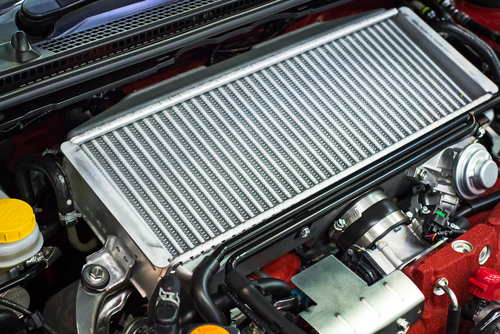Car radiator hoses are an essential component of the heating and cooling system of any vehicle, as these circulate the coolant between the engine and the radiator. If these experience a problem or issue, your heating or cooling system may be compromised or stop working altogether. But what are the common problems with car radiator hoses? And how can these be resolved?
What are the most common problems with car radiator hoses?
Car radiator hoses can experience a number of problems that affect the functioning of the radiator overall, as well as the engine. Some of the most common problems include:
- Leaks
- Cracking
- Bulging
- Softening
- Blockages
Leaks from car radiator hoses
One of the most common issues that car radiator hoses experience is leakage. This is because the hoses are often made of rubber material that can deteriorate over time. Any deterioration can lead to leaks between the hoses and components, or along the hose itself, which results in coolant loss. This can lead to damage and corrosion within the system, but it can also lead to the overheating of the engine if not addressed promptly.
Cracking
Another common problem with radiator hoses is cracking. This can often happen due to prolonged exposure to extreme temperatures. In the UK, this is more common in the colder winter months, or after a heatwave. These cracks tend to develop along the surface of the hose, which can compromise the integrity of the hose, leading to coolant leaks.
Bulging
Bulging or swelling of radiator hoses is often caused by a build up of pressure within the cooling system. Over time, the constant exposure to high temperatures and pressure can weaken the structure of the hose, causing this to bulge outward. This bulging indicates that the hose is nearing the end of its service life and should be replaced promptly to prevent a potential failure.
Softening
Another common issue with radiator hoses is that these can soften over time. Again, this is related to the fact that radiator hoses are made from rubber. Softening of the hoses can lead to a loss of structural integrity, making them more susceptible to damage and leaks. Regular inspection of the hoses is essential to identify signs of softening and replace them before they fail.
Blockages
Finally, radiator hoses can suffer from blockages, from the accumulation of debris, sediment, or contaminants. Blockages can impede the flow of coolant, which can lead to the engine overheating. Across the country, debris such as dirt, leaves, and salt residue from winter road treatments can find their way into the cooling system, and all of this can cause blockages. Flushing the cooling system regularly can help prevent blockages and maintain the proper flow of coolant.

Here at MRS Heat Transfer we are radiator, car heater, intercooler, and air conditioning experts, and we have the skills, knowledge and expertise to resolve any air conditioning or car heater problem. Why not get in touch today to find out more?

